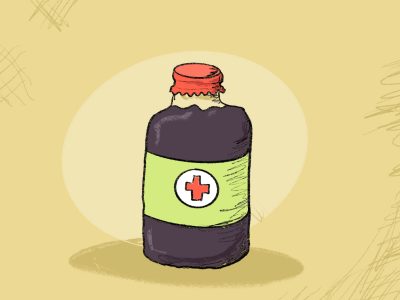Back in September, a Food and Drug Administration advisory panel ruled that a certain nasal decongestant, known as phenylephrine, has been found ineffective when taken orally.

It doesn’t sound like such a big deal until you realize that oral phenylephrine has been around since the 1930s and can be found in common cold medicines like NyQuil and Benadryl.
It’s not that phenylephrine isn’t safe — the Federal Food, Drug and Cosmetic Act of 1938 means that a drug has to be deemed safe before being sold — but rather, phenylephrine just isn’t that useful when taken orally. Only in 1962, with the Kefauver-Harris Drug Amendment, did prescription and over-the-counter drugs actually have to be effective in addition to being safe.
According to the NHS, decongestants work by “reducing the swelling of the blood vessels in your nose, which helps to open the airways.” But, when phenylephrine is taken orally, it doesn’t go right to the source. Instead, it goes through your metabolic pathways and gets absorbed in your gut. It then reaches your nasal passages via the medicine absorbed into your bloodstream, which is often an insufficient amount.
This isn’t new information, either. Randy Hatton and Leslie Hendeles, professors at the University of Florida, have had suspicions about orally-consumed phenylephrine’s efficacy for years, and have been filing petitions to the FDA since 2007.
One of the biggest problems that people like Hatton and Hendeles face is that since phenylephrine isn’t exactly harmful, there isn’t a lot of incentive for the FDA to go through the expensive and time-consuming process of clinical trials. Stefanie Ferreri, a professor at the University of North Carolina, told the Wall Street Journal, “It’s not a safety concern so it’s not a priority of the FDA.”
Of course, just because something isn’t physically harmful doesn’t mean it isn’t financially harmful to the people who expect their medicine to work.
Hatton and Hendeles were finally able to get their evidence when the pharmaceutical company Schering-Plough funded a study on phenylephrine. The purpose of the company’s study was to create another phenylephrine product, but it’s commendable that Schering-Plough still published their negative results.
When I first heard the news, I really worried about public response. Science has become the latest political punching bag, and considering upcoming elections, I’m still unsure if this will somehow make its way into the narrative.
I do find it frustrating that there have been allegations of oral phenylephrine’s inefficacy for years without much FDA action. At the same time, this is a good reminder that the FDA, like many government organizations, is not always perfect.
It benefits the FDA’s reputation to be overly cautious when making important decisions about drugs and treatments because then there is less of a chance of making a potentially harmful mistake — even if that means keeping good drugs off the market or maintaining the status quo with older drugs like phenylephrine that have been proven safe but not effective.
It’s also important to note where and when the FDA has jurisdiction over certain treatments. For a long time, I thought that whatever was on the market has been meticulously vetted and verified.
But, that’s not always the case.
Take dietary supplements, for example. According to the FDA’s website, “the FDA does not approve dietary supplements for safety and effectiveness or their labeling before they are sold to the public.”
The website continues: “in many cases, companies can produce and sell dietary supplements without even notifying the FDA.”
I doubt phenylephrine will be the first commonly used drug to be proven ineffective, especially since Hatton and Hendeles wrote that “it’s an open secret among many of us who study pharmaceuticals that several ingredients, including ones found in common treatments like Robitussin, Mucinex and certain cough syrups, probably don’t work as advertised.”
This means that we as consumers either need to educate ourselves on scientific literature and federal law — a daunting, if not impossible task — or pay the price for ineffective medicine.
I think that the phenylephrine ruling, while upsetting, presents an opportunity. This ruling has gotten a lot of publicity, with places like CVS even going so far as pulling products with oral phenylephrine as the only active ingredient from their shelves.
Perhaps with enough public interest, lawmakers can start fixing the framework that led to decade-long delays in testing phenylephrine and prioritize working through other drugs with inefficacy allegations. It’s unfair to ask the American consumer to do pharmaceutical homework when they’re just trying to find sickness relief.














